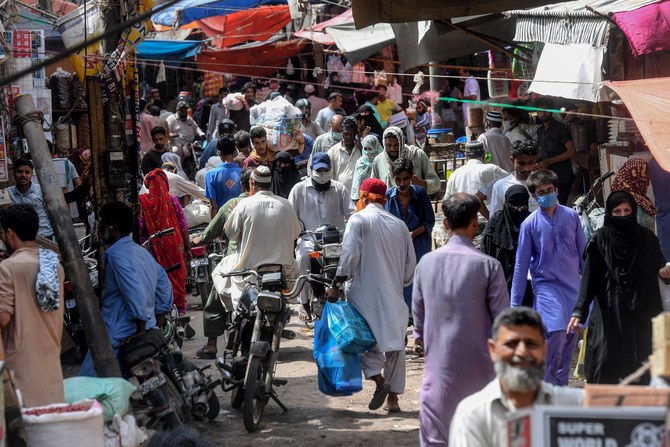ISLAMABAD: Pakistan’s total population is estimated at 220.9 million and is growing ‘rapidly’ with an annual fertility rate of 3.6 children per couple, a world population report has said, raising concern among experts this week of the effect of this on the country’s natural resources, food and water.
The 2020 World Population Data Sheet released by the US Population Reference Bureau on July 11 predicted Pakistan’s population would be 287.2 million by mid-2035 and 347.8 million by mid-2050.
“It is a threat to Pakistan’s economic situation,” Dr. Nuzhat Khan, a public health practitioner, told Arab News on Monday, commenting on the report’s predictions, and adding that without government intervention, the country would face a shortage of housing, water and food.
The rapid increase in population "is a threat to #Pakistan’s economic situation," says a public health practitioner warning of its impact on the country's shrinking resources. || #PopulationControl #Economy
–
Full story by @AamirSaeed_: https://t.co/bj4QSdGiGm pic.twitter.com/clJlyERy5b— Arab News Pakistan (@arabnewspk) July 21, 2020
“We will be starved. We won’t have enough food to feed everyone,” Khan said.
She suggested that the government involve religious leaders to help raise awareness about family planning. “This is a very religious country and people go to the religious leaders for advice, and their help can bring a positive change,” Khan said.
At the current rate, Pakistan’s annual population grows by an average of more than five million newborn babies per year. The government says it plans to bring this down to 1.1 percent, with the average addition of 2.3 million on an annual basis.
Dr. Shahid Hanif, director-general of the government’s Population Program Wing, said the government already had an effective population planning program in place.
“We do know that we will be able to better utilize our resources with a manageable population, so we are focusing on dealing with this challenge,” he said.
Dr. Zeba Sathar, Pakistan’s country-director of the Population Council, said Pakistan was facing myriad problems due to the “population explosion.”
“We aren’t only eating out actual resources like forests and water, but an issue of food security is also emerging,” she said, urging the nation “to balance our resources” to meet the challenge.
“If the policy was clear like in many other Muslim and South Asian countries, if that was in place, the results would have been much different,” Sathar said. “A strong voluntary family planning program is virtually absent in Pakistan.”
More than a third of Pakistan’s population faces food insecurity, according to the World Food Programme.

















